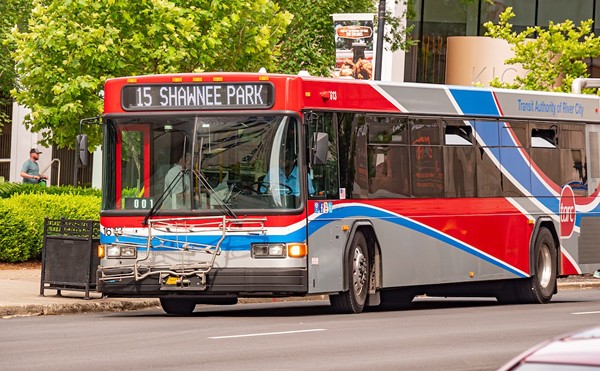With the election behind us, many Americans have turned their attention to the “fiscal cliff,” a phrase widely used to describe the economic splatter that awaits us because, like Wile E. Coyote, we didn’t study law.
This calamity looms because the Bush-era tax cuts will expire at the end of this year, after which point rich people will have to pay fair tax rates, which historically has tended to make them crabby. Many economists predict this could lead to a collapse of the lunchtime-martini sector. Complicating matters further, automatic spending cuts go into effect at the same time, which could result in dramatic military cuts unless we can find our drones cheaper online. Even worse, people might forget about George W. Bush, who always bolstered our spirits by mispronouncing words.
We’re in this predicament because the Joint Select Committee on Deficit Reduction could not reduce the deficit, perhaps because the committee selected too many joints, which are now legal in 57 states (unless that tally is also joint-impacted). But the fiscal cliff is not the only challenge facing America. Here’s a look at some of our other looming geography-themed pickles.
The mountain of debt: By invading more countries than our Discover Card allows, we have amassed a $16 trillion debt. It’s so large that we would have to cancel “Sesame Street” for 36,000 years just to turn a profit. Economists refer to this debt as a mountain because we spent most of the money looking for Osama bin Laden, who was very good at hiding in them. One positive note: Some geo-economists are experimenting with a plan to use the metaphorical mountain of debt to rebuild actual mountains lost to coal extraction. If not, we’ll need to focus our attention on …
The spending volcano: Over the past decade, the federal government has gone on a massive spending spree, including two wars, stimulus programs and bailouts. In hindsight, we also probably shouldn’t have popped for those hookers and Dom Perignon in Vegas, but hey, we’re America and that’s how we roll, and we’re pretty sure we’re going to win it all back on roulette any day now. Unfortunately, until that day, we are facing what the pundits call the “spending volcano,” which fortunately was chosen over inferior neologisms like “spending ejaculation” and “spending projectile vomiting.” On the other side of the ledger, there’s …
The tax tundra: We ran up much of our debt because we cut taxes but didn’t reduce spending. Fully $3 trillion of the national debt comes from the Bush tax cuts alone, yet many of the most gluttonous among us don’t want to pay more in taxes. This untenable situation is known as the “tax tundra,” because our poor are going to have to eat frozen moss this Thanksgiving. But if we raise taxes, we face …
The jobs chaparral: If the fiscal cliff indeed causes a contraction in the lunchtime-martini sector, the result could be massive layoffs in the olive-stuffing and tablecloth-crumbing segments of the economy. That could spill over into the farming and energy sectors, which would set adrift a series of unemployment tumbleweeds, which might tumble into what experts call the “jobs chaparral.” Such a sticky thicket could tend to drain …
The comfort estuary: Even though studies show that science is hard and there is often nothing good on TV, Americans still enjoy a robust gross domestic stomach. Corn-syrup confidence is high, leaving us with the overwhelming urge to watch crime dramas from the comfort of our La-Z-Boys. Economists call this phenomenon the “comfort estuary,” a term derived from the brackish nature of the Pabst Blue Ribbons we find so delicious. That said, we still have the opportunity to build into our infrastructure a massive …
Happiness pothole: No matter how challenging our lives become, we can always look around the world and find somebody poorer, sicker and less able to digest cheese. And, thanks to the indomitable American spirit, we will always reign supreme in our belief that this is the greatest country in the history of the world, no matter what the evidence shows — a happiness pothole into which we will steadfastly steer our Chevy Suburbans.
So as you can see, we face a challenging second half of the fourth quarter, possibly even into sudden-death overtime. But I am confident our leaders can solve these problems every bit as effectively and sincerely as I’ve explained them here. ![]()






